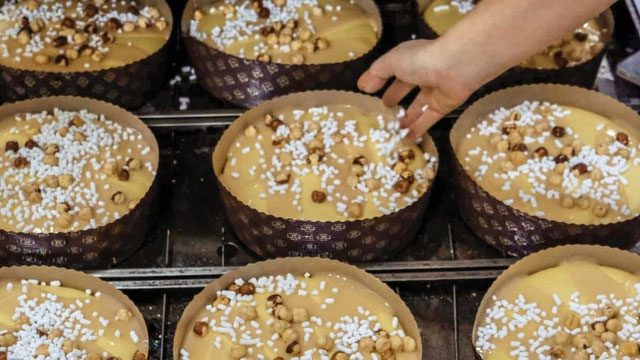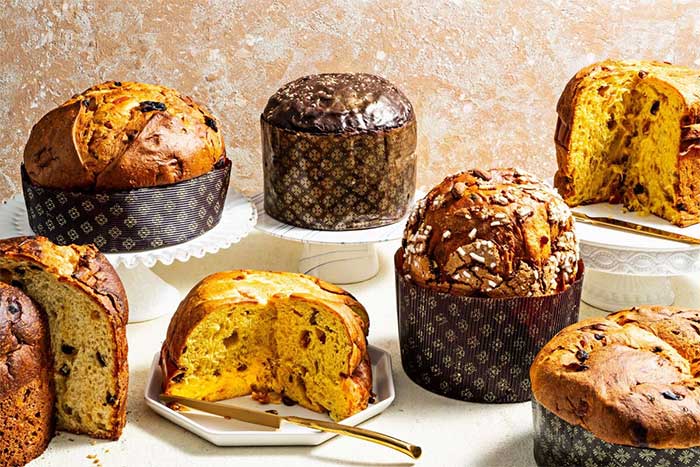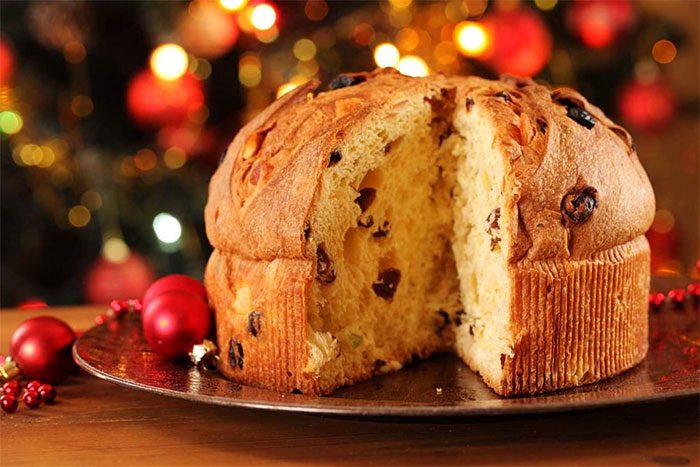Panettone – The Traditional Christmas Cake Spreading Italian Culture Worldwide
When mentioning the island of Sicily (Italy), visitors undoubtedly think of its white sandy beaches, ancient architecture, and a variety of delicious dishes like arancini, caponata, and cannoli. However, recently, Panettone has emerged as a famous delicacy on this island.

Making Panettone. (Image source: CNN).
Panettone is a popular Christmas cake traditionally baked in northern Italy, especially in Milan, where this cake originated. Not far from the city of Palermo in Sicily, a chef named Nicola Fiasconaro is creatively inspiring and elevating the tradition of Panettone, making this Christmas cake renowned worldwide.
It all began in Castelbouno, a small village nestled between the Mediterranean Sea and the Madonie Mountains, one of the highest ranges in Sicily. Here, the Fiasconaro family has long owned an ice cream shop and a café in the town’s main square. In the late 1980s, Nicola was a young pastry chef eager to experiment with making Panettone. Nicola shared, “My father used to buy 2000 industrially produced Panettone cakes from the north to sell in the café during the holidays. Then I decided to try my hand at creating my own version.”
In a land rich in tradition, many were skeptical about Nicola Fiasconaro’s Panettone.
“People asked me why I didn’t make cassata, cannoli, or pignolate instead of Panettone here. However, I believed that Panettone wasn’t just from Milan, Piedmont, or Veneto – the first regions to have this cake; even Sicily could produce it.” Nicola Fiasconaro shared.
And thus, the Fiasconaro Panettone was born. Panettone is also referred to as “Mannetto” because it includes a sweet resin extracted from the ash tree, creating a natural sweetener. Consequently, the flavor of Panettone is inspired by “northern culture but with southern Italian ingredients.”
“By the second year, I started adding hazelnuts to the cake. After this Panettone was introduced in Milan and Verona, people in both regions began to enjoy its flavor,” Fiasconaro explained.
Global Export
A major breakthrough came in 1995 when Fiasconaro attended a food trade event in New York called the Fancy Food Show.
“At that time, Panettone was not yet famous in Sicily, and I was just a guest at another company’s booth. I brought two or three Panettone cakes and a brochure introducing the cake. Buyers stopped by to taste and immediately ordered 7000 more Panettone cakes,” Fiasconaro recounted.
Containers arrived weeks later, and Fiasconaro’s Panettone began to be sold in about 30 stores around New Jersey and New York. From that initial shipment, the company started exporting Panettone to 65 countries, including the United States, Canada, Australia, and various European nations.

The artisanal baking process takes more time than industrial baking.
“Panettone has become more popular and has spread Italian culture abroad. We are also opening stores in other countries such as India and new areas of the Middle East,” Fiasconaro shared.
Over the years, the artisanal cakes from the Fiasconaro family have continued to embody the essence of Sicily, incorporating local pine nuts, oranges, and almonds, as well as traditional sweet wines like zibibbo and marsala. Today, about 30% of Fiasconaro’s Panettone is sold internationally, with peak production reaching approximately 18,000 kg per day, especially during the high season, and is expected to reach 1.7 million kg this year, equivalent to about 2 million Panettone cakes. Fiasconaro acknowledges that these figures reflect industrial production but insists that all cakes are made by hand.
“Everything is made by hand by 220 pastry chefs. It’s all meticulous, like jewelry, but this is still a cake,” Fiasconaro shared.
The artisanal baking process requires significantly more time than industrial baking, sometimes taking up to three days to produce a cake due to the fermentation process rather than relying solely on sourdough (as in industrial baking).
“This is a wonderful method of making sweet cakes based on the experience of great chefs from the past; I truly haven’t invented anything, just learned,” Fiasconaro emphasized.

The artisanal cakes from the Fiasconaro family continue to embody the essence of Sicily.
The Cake for Christmas
Today, Fiasconaro has the ability to innovate Panettone recipes to suit the tastes of various customers, including some eye-catching versions with cherry jam or pink chocolate. Panettone has also been sent to three Popes, a handful of heads of state, and even astronauts. Over the years, Panettone has received numerous accolades and awards.
Fiasconaro was honored as an outstanding entrepreneur in 2020 for his contributions to the local economy.
“Sicilian Panettone endures and is becoming a symbol of Italy worldwide. That makes us even prouder,” Fiasconaro emphasized.


















































